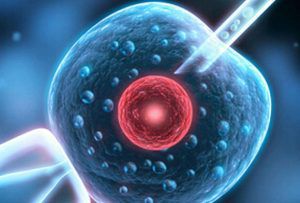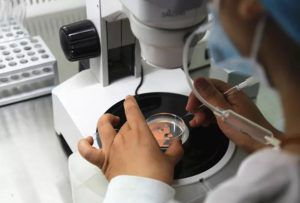Since its development in the 1970s, In Vitro Fertilization (IVF) has become an important tool to help infertile couples realize their dreams of having children. The egg retrieval process is one of the key steps in IVF, through which doctors can extract eggs from a woman's body and combine them with sperm in the laboratory to form an embryo. As technology advances, the safety and success rates of the egg retrieval procedure continue to improve. Statistically, data from the Centers for Disease Control and Prevention (CDC) shows that approximately more than 100,000 IVF cycles are performed in the United States each year, the vast majority of which involve egg retrieval procedures. In this article, we'll take a closer look at the IVF egg retrieval process, analyzing pain levels, detailed steps, and post-operative care to help readers fully understand this important medical procedure.
Does IVF hurt during egg retrieval?
During IVF egg retrieval, many women are concerned about whether they will feel pain. In fact, modern medical technology has made the egg retrieval procedure relatively comfortable, and pain sensations are usually mild and manageable. Egg retrieval procedures are usually performed under intravenous sedation or local anesthesia, which allows patients to feel much less pain during the procedure. Studies have shown that more than 90% of patients feel only mild discomfort during the procedure, rather than severe pain.

Specifically, the pain during egg retrieval is similar to abdominal pain during menstruation. Using ultrasound guidance, the doctor passes a thin puncture needle through the vaginal wall and into the ovaries to aspirate the mature egg. The entire procedure is usually completed in 20-30 minutes. While local anesthesia does not completely eliminate all discomfort, most patients report that this level of pain is tolerable.
In addition, mild bloating, abdominal pain, or a small amount of vaginal bleeding may occur after the procedure; these symptoms usually resolve on their own within a few days. If a patient experiences unusual pain or persistent discomfort, they should contact their doctor promptly to ensure that no complications have occurred.
The whole process of IVF egg retrieval
- preoperative preparation
Before the egg retrieval procedure, a woman needs to undergo a series of preparations. First, the doctor will monitor the growth of the follicles through ultrasound and blood tests and determine the best time for egg retrieval. Patients usually need to be injected with ovulation stimulating drugs to encourage multiple follicles to mature at the same time. Statistically, an average of 10-15 eggs are retrieved per IVF cycle.
On the day of the procedure, patients will need to empty their bladder and enter the operating room wearing a gown. The doctor will sterilize the vulva and vagina to prevent infection from occurring. The equipment and environment in the operating room are also sterilized to ensure a safe procedure.
- ovum extraction
The egg retrieval procedure is performed under ultrasound guidance. The doctor inserts a sterilized vaginal ultrasound probe into the vagina and uses the ultrasound image to locate the ovaries and mature follicles. The doctor then inserts a thin puncture needle through the vaginal wall into the ovary and through the follicle wall to aspirate the egg. The entire process requires a high degree of precision and experience on the part of the doctor.

During the puncture, the doctor will use a negative pressure suction device to suck out the follicular fluid along with the egg. Each mature follicle usually contains one egg, but may contain more than one. The doctor will puncture as many follicles larger than 10 millimeters in diameter as possible to increase the number of eggs retrieved.

- postoperative observation
Once the egg retrieval procedure is complete, the doctor will carefully examine the ovaries and pelvis to ensure that there is no internal bleeding or hematoma formation. The patient will need to rest in the recovery room for 1-2 hours to observe any abnormalities. If everything is normal, the patient can leave the hospital that day and return home to rest.
Do you need bed rest after IVF egg retrieval?
The need for prolonged bed rest after IVF egg retrieval is a concern for many patients. In fact, in most cases, patients do not need to stay in bed for a long period of time, and appropriate activities will help the body recover.
- Proper rest after surgery
Egg retrieval surgery has a low impact on a woman's body, and after resting for 1-2 hours after the procedure, patients can usually leave the hospital and gradually return to their normal activities. Short periods of rest help the body to recover, but there is no scientific evidence that prolonged bed rest significantly improves recovery.
- Life care and healthy eating
After surgery, patients should pay attention to life care and healthy diet to maintain good physical condition. Avoid strenuous exercise and heavy physical labor, eat a diet rich in protein and vitamins, and maintain adequate water intake. If symptoms such as bloating and abdominal pain occur, they should take proper rest and consult a doctor for advice.

- Monitoring of physical condition
In the days following the procedure, patients should closely monitor their health, especially for symptoms of Ovarian Hyperstimulation Syndrome (OHSS), such as severe abdominal pain, bloating, nausea or vomiting. If these symptoms occur, they should seek medical attention for professional evaluation and treatment by a doctor.
summarize
The IVF egg retrieval process is a key step in assisted reproduction treatment, and the technology has matured considerably over the years. The whole process is carried out under anesthesia and ultrasound guidance, and the pain felt is mild and generally acceptable to patients. Proper rest and good life care after the procedure play an important role in recovery. Understanding each part of the egg retrieval process helps patients to be psychologically prepared so that they can successfully complete the IVF treatment and realize their dream of having children. Modern medical technology continues to advance, bringing hope and possibilities to more infertile couples.





